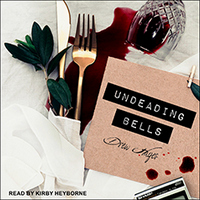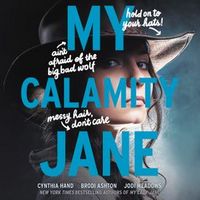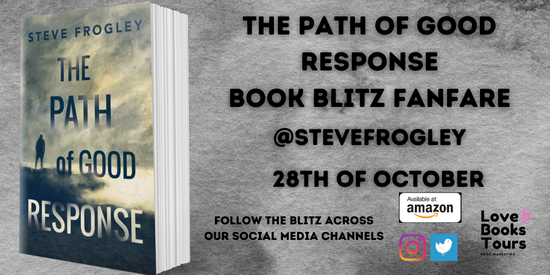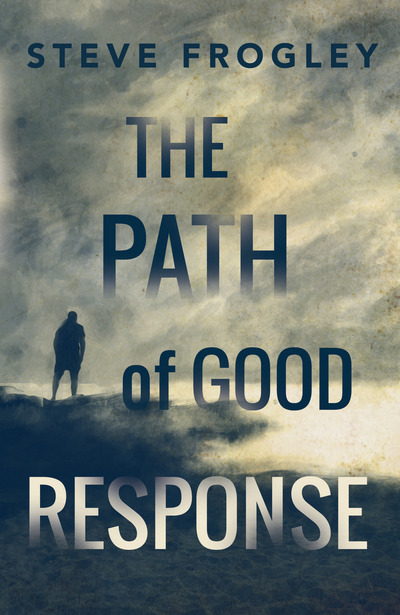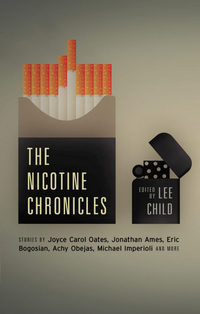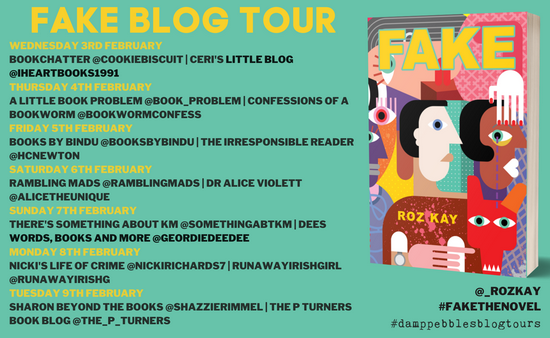
 |
by Roz Kay
Kindle Edition, 285 pages
Darley Press, 2020
Read: February 1-3, 2020 |

This is essentially the story of three couples (with a primary focus on the husbands) and one of the worst dinner parties this side of an event hosted by Frasier and Niles Crane in the few days leading up to it and its aftermath. Let’s meet the couples (building in order of importance to the book) before we look at the night.
Couple 3: Nick Lombardo and Pumpkin Number 4
The first thing we see Nick do is to demand a debt to be repaid by his employee and our narrator, James. He then proceeds to invite himself to dinner at James’s new home so he can introduce his new wife to James and his wife.
He makes a very poor first impression on the reader—he’s demanding and a little demeaning about the debt. Then he’s rude about the invitation. And then we get to know him, and we understand we were too kind in our initial impression. The wife he’ll introduce to James is his fourth wife, they just got back from their honeymoon, and one week into his marriage his small office staff is already wondering if he knows who his fifth wife will be. It escapes no one’s notice (except maybe his wives) that he calls them all “Pumpkin.” Ostensibly, this is to prevent him from using the wrong name/endearment.
We don’t actually meet—or learn the name of—his wife until they arrive at James and Imani’s door, around the sixty percent mark. In a way Stephanie’s not that major a factor in the events of the novel—at the same time, it’s her presence and actions during the party that guarantees it will be a disaster. Stephanie is, however, one of the few completely sympathetic characters in the novel.
Couple 2: Bruce and Davorka Miller
Bruce and Davorka have been married for 15 years, they met when Davorka (an Eastern European refugee) took Bruce’s ESL class. Bruce is a very selfish man and has a hard time thinking of anything above his comfort and ease (which he assumes will be for Davorka’s benefit, too, even if she doesn’t agree). A few weeks ago, Bruce and Davorka retired to Fort Lauderdale. Bruce had sunk all his savings into the purchase and renovation of the home (he didn’t let Davorka know this), planning on staying there for the remainder of his days, what did he need money for anything else for? (also, he bought the house on an online auction and didn’t know how bad it was inside until it was too late and he had to spend all his money on getting it liveable).
Another thing he didn’t tell Davoka was that he didn’t see the point in disaster insurance—hurricanes are a rare thing, really. Why bother insuring the house against them? Reader, don’t shake your head at me, this was Bruce’s thinking, not mine.
They’re barely settled in their new home before it’s destroyed by a Hurricane. The Millers decide to go visit Davorka’s daughter in Philadelphia while they figure out their next move. Bruce and Mira don’t get along really (mostly it’s Bruce and Mira’s husband, Alex), and she has the flu, so they need to stay somewhere else. Bruce knows he can’t afford a hotel, so he calls the couple that rented their Philadelphia home to inform them they’ll be staying with them for a while, doing so in a way that poor Imani doesn’t realize what he’s done until he’s hung up.
Couple 1: James and Imani Cowper
This is our main couple, really. Most of the book is told from his first-person perspective. Imani is a nurse who treated Mira for some recent illness. The two became friends and when James and Imani lost their previous home, Mira connected them with her mother and step-father.
They lost their housing because of James’s gambling, which ruined them financially. Then he effectively stole from his employer (Nick) to help get them back on their feet, which wasn’t that successful. Nick didn’t prosecute or fire him, for reasons which are eventually hinted at but never stated.
These issues almost ruined their marriage, but they’re working on it and are seeing a Marriage Counselor (James frequently cites the Counselor and does what she’s suggested, but doesn’t seem to get the meaning of the actions, just the actions). One of the main questions I had throughout the book was why she stayed with him, and even when she answered that to a friend, I didn’t buy it. Maybe she doesn’t know why she stays, either. But she is for now.
I have a lot more I’d like to say about them, but it all would take too long and involve spoilers—it’s probably best if you hear it from James anyway.
Imani let the Millers invite themselves to stay (and they are horrible guests, as you might expect). James let Nick invite the Lombardos to dinner. Their marriage isn’t in a good place already and this stress isn’t doing anyone any favors.
The Dinner Party
For reasons of his own (which Imani makes clear she neither approves of or understands), James doesn’t want Nick to know they’re only renting. He doesn’t want anyone to talk about their son in college. He doesn’t want the Millers to know their financial situation. And there are a couple of things he doesn’t want anyone knowing. And that’s before anyone shows up for dinner.
The Millers have had a bad day with Mira and are antagonistic. Nick and Stephanie are drinking heavily (Stephanie in particular). James is afraid one of his lies or secrets will be exposed. Imani knows he’s up to something and is suspicious. The oven isn’t working well so dinner’s late. No one has anything in common to talk about and tensions are high.
And then things start to fall apart…
So, What Did I Think About Fake?
Well, I spent a lot of time sketching out the setup to the book—and I left a lot out. That’s essentially what Kay does, too. The dinner party doesn’t start until 62% or so of the way in. Which is a whole lot of setup.
I honestly don’t think she did enough to make anything interesting enough to keep reading until that point—when it becomes quite interesting. Your results may vary (and probably will), but I kept waiting for something to grab my attention—it did come, but by that time my patience had worn thin. Still the thing that piqued my interest paid off with many dividends.
I absolutely get why Kay had to spend so much time setting up the dominoes of this dinner party—and when she tips the first one over you start to see what she was doing, and as the dominoes topple one by one your understanding of what she was doing grows—as does your appreciation of it. It was truly a skillful job there.
It’s being marketed as a satire—I’m not sure I see that, I’d describe it as a farce instead. This is neither the first or last time that I’m quibbling with marketing on things like that. Maybe it’s a satirical farce (I just don’t know what it’s satirizing). Maybe I should ask for a refund on my lit courses. Whatever you want to call it, the dinner party and the disaster it becomes is almost perfectly executed. This is a dish that simmers for a long time before it’s ready to serve, but once you taste it, you understand why it took so long to cook.
I guess Kay could be satirizing the idea that there are any worthwhile males in the world—you won’t find any in these pages. The women, on the other hand—even the ones it may take you most of the novel to decide what you think about—are as commendable as people as they are as characters. They all deserve better spouses, that’s for sure.

My thanks to damppebbles blog tours for the invitation to participate in this tour and the materials (including a copy of the novel) they provided.


 And now we’re caught back up to where we were at the end of the last book (seven chapters back)—Mrs. Honour has shown up at Mrs. Miller’s and dropped a bomb on Tom. The news that Sophia is with her father and bound to be married to Blifil—and that Hounour has lost her job—is bad, to be sure, but the way she was carrying on, Tom thought it was worse news. She’s a tad annoyed he’s not as distraught as her.
And now we’re caught back up to where we were at the end of the last book (seven chapters back)—Mrs. Honour has shown up at Mrs. Miller’s and dropped a bomb on Tom. The news that Sophia is with her father and bound to be married to Blifil—and that Hounour has lost her job—is bad, to be sure, but the way she was carrying on, Tom thought it was worse news. She’s a tad annoyed he’s not as distraught as her.![]()








